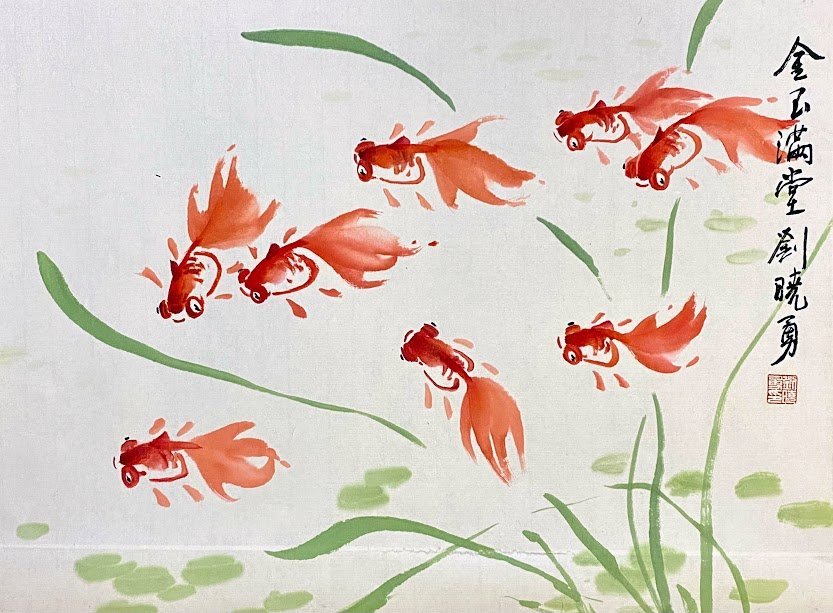Two Poems By Connor Watkins-Xu
If you come back tomorrow,
I’ll regret the way I’ve spent
my days stuck in the dryer,
shrinking, dyed red, like
the vintage T-shirts I leave
at the bottom of the basket
each laundry day that passes.
Three Poems By Shome Dasgupta
A sift of flaked leaves
and fallen moss—dirt
cooled between fingers,
crisp and brown, netted
grass itch for an earth:
King Tide By Haley Bossé
Each year, a memory
Of tourists makes their way
Below the thermocline.
Four poems by Kim Simonsen, Translated by Randi Ward
By Kim Simonsen, T. Randi Ward
This morning the ocean has again tossed man-sized
black boulders up onto the shelves of rock along the shore.
Three Poems By Deborah J. Shore
Sometimes you are carried by the wreckage
of your own ship—as helpless to direct this
flotsam as you were when it was floorboards
that lurched beneath disquiet cries of shorebirds.
2024 Online Poetry Contest Finalist: Ode to Finales
By Kiersten Czuwala
After dinner, my boyfriend tells me that I should learn to slaughter my own meat.
That actually, farmers have pinpointed down to the angle
exactly how to position a barrel against a cow’s skull
to flood the hollow of the bullet hole
with serotonin.
2024 Online Contest Poetry Winner: Half Brother (Letter to Eli)
By Luci Arbus-Scandiffio
Being a baby, I think, was like that–looking up and out
at something like a sea wall
feeling waterlogged
feeling nearly extinct
my face shiny like a seal’s face.
Story & Five Poems
By Ivy Char
It was Celia who first called me H. Although we were close, having known each other since kindergarten, I had learned to stray from topics that might turn to points of contention, as was apparently the case with the letter. And besides, there existed the distinct possibility, advanced by the satisfied look on her face, that this was all some sort of friendly challenge. “Why ‘H?’” I wondered, and wondered often.
From Thirty Pages
By Avot Yeshurun, translated by Dan Alter
A day will come no-one reads my mother's letters.
A pile I have of them.
Not from a her
No word.
Dear End Times,
By Kerry Kurdziel
The surcharge for being alive
has risen again. The bells won’t stop
weeping. We keep sinking
each other and calling it
tragedy -
Goldfish in the Palace
By Kaci X. Tavares
It’s been too long since I’ve tried to write my Chinese name 黃曉殿 Húang Xǐaodìan. Muscle memory—barely. In Chinese, your family name comes first, the unit identified before the individual. My family: orphaned sisters who borrow a benefactor’s name. Me: Daybreak over a Palace. I cannot find the palace—
The Garden of the Five Trees
By Salvador Espiru, translated by Andrew Kaufman and Antonio Cortijo Ocana
After, when it had already
caused me much harm and
I could do almost nothing but smile,
I chose the simplest
words, to tell myself
From the Archive: R. Flowers Rivera’s “Exegesis: A World Gone Awry”
By Alex Wexelman
Rivera wrote on her official website, “Growing up, I was steeped in the oral tradition,” the inflection evident in her confident prosody.
Ars Poética for a First G(ay)eneration Mexican-American
By Saúl Hernández
I lick every drop of sperm off a white man"s navel, / put my lips on his shaft, / his hand grips the back of my neck, / I open my mouth to swallow again, / Tell me something in Spanish. / Sound of my slob in the air, / Tell me something / in Spanish, Tell me / something in Spanish, / Tell me something / in Spanish. /That’s how English asphyxiates me.
Two Poems by Aura Christi
By Aura Christi, translated by Gabi Reigh
There’s nothing to be done.
The sun swallows the room where I write -
The pleasant tomb of before, tomorrow, after.
A white vulture splits the window
And its wax shadow tips
The whole house skywards.
From the Archive: Eavan Boland “On Religion and Poetry”
By Alex Wexelman
In 1982, Eavan Boland wrote an essay titled “On Religion and Poetry” for The Furrow, a monthly journal for the contemporary Church. Eleven years later, The Columbia Journal reprinted the tract in its No. 18/19 issue.
Naptime Fairy
By Madeleine Voge
I was never chosen to be the naptime fairy, the one who tiptoed around the classroom and waved a wand with bells on the end of it because instead of curling up and closing my eager eyes, I stacked blocks and whispered with Brooks, the boy with long eyelashes who was allergic to bees.
Three Poems by Yuri Andrukhovych
By Yuri Andrukhovych, translated by Ostap Kin and John Hennessy
Dr. Dutka, who knew nineteen languages
(and with dialects, spoke twenty-four),
reflected the entire world, like an ancient mirror,
and sued his grandchildren for apartment space.

















































